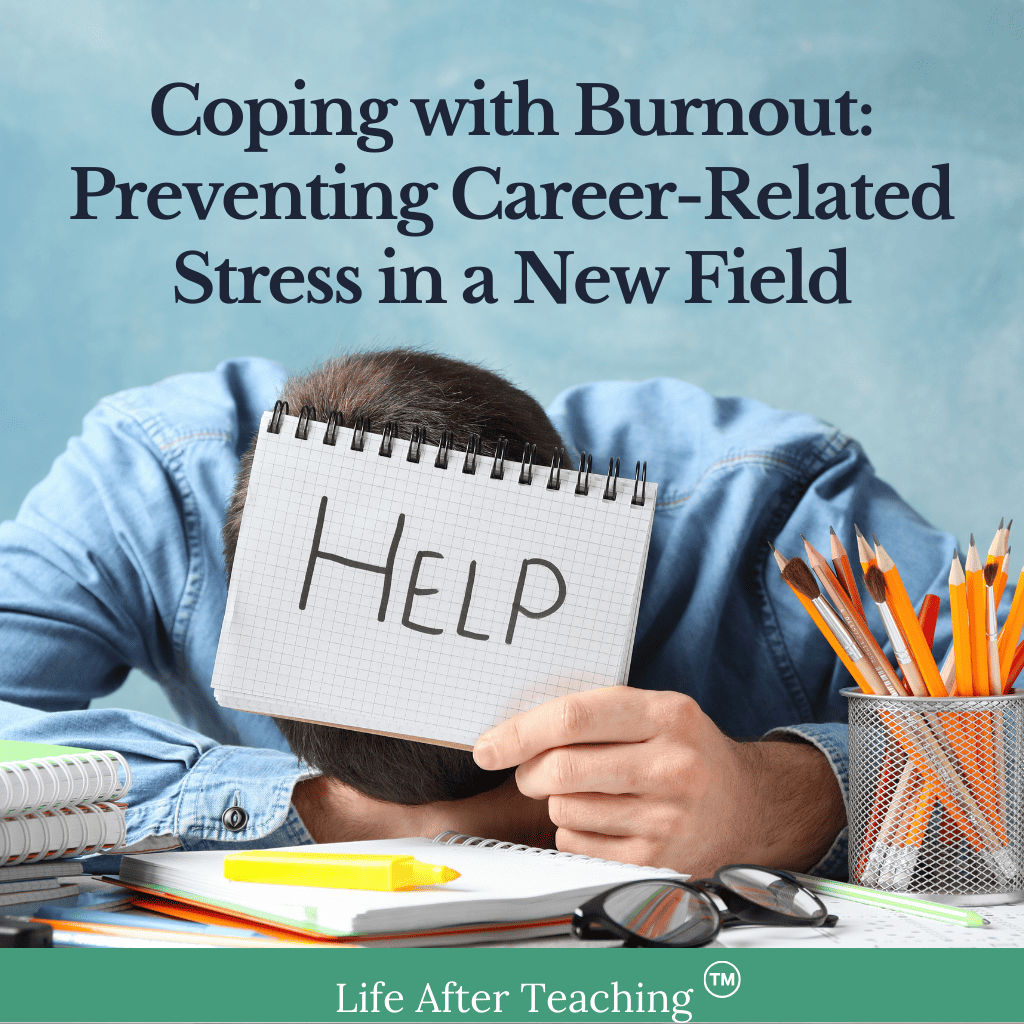
So, you’ve walked away from teaching and welcomed a new career because you were feeling a little (OK, a lot) burned out. But there’s one problem: the symptoms of burnout are back again.
For some teachers, switching careers can be an effective way to combat burnout. However, this isn’t always the case. A career shift can introduce additional sources of burnout, often exacerbated by the pressure to excel in your new role. Before you know it, you may start to be as burned out as before, and on the verge of yet another exit interview—a déjà vu moment you’d rather avoid.
In this article, we’ve put together a few strategies you can take if work is starting to take a toll on your mental health. In that way, you can find professional success in any field and beat burnout before it’s too late.
How to Deal With Career-Related Burnout
Here are some tips to help you cope with career-related stress, and in turn, steer clear of burnout:
Change Your Surroundings
If you work from home, note that you’re still susceptible to burnout despite the work-life balance it touts. Spending each day in the same environment can make you less motivated. Furthermore, your daily routine may cause you to feel trapped in an unending cycle.
To cope with burnout, consider adding variety to your workspace. For example, you could work outside or move your desk to a different area. For a more significant change, try working from a new location, even if only temporarily. There are plenty of move-in-ready apartments that cater to professionals, complete with work amenities such as Wi-Fi.
Go on a Vacation
Don’t let your paid time off (PTO) go to waste! Give yourself a well-deserved break by planning a trip, allowing you to get away from your work obligations. To make the most out of your vacation, steer clear of any work-related tasks, whether it’s checking emails or attending a conference call. Whether you’re embarking on a weekend trip or a global getaway, taking a break will give you the refresh you need to fend off burnout.
Make Time for Hobbies
If you’re feeling overwhelmed at work, find a way to de-stress during your 5-to-9. Make time for your hobbies, whether it’s sewing, painting, or simply reading a book. It will offer you a chance to disconnect from work-related pressures, while giving you something to look forward to. By pursuing your hobbies, you’ll come to realize that there’s more to life than your career.
Get Enough Sleep
Lack of sleep is one of the predictors of burnout. Unfortunately, getting enough sleep when you’re already burned out can be a challenge.
To get the rest you need, aim to go completely offline at the end of your workday. For example, you could stop checking emails and catching up on tasks when the clock strikes 6 p.m. Those can wait until tomorrow, anyway. You’ll find it easier to fall asleep when your mind is clear. And when you’re well-rested, you’ll be less stressed and better able to bring your A-game the next day.
Exercise
Several studies have shown the benefits of exercise on one’s mental health. Not only does it boost your mood by lowering your body’s cortisol levels, but it also serves as a distraction from bad thoughts.
Find something that you genuinely enjoy, whether that’s weight-lifting at the gym, running after work, or joining a yoga class. If you can’t carve out time for exercise, identify activities you can easily incorporate into your daily routine, such as walking or cycling to work.
Seek Support from Your Circle
Burnout isn’t something to be embarrassed about. Seek out friends whom you feel comfortable with and talk to them about your situation. They can offer fresh perspectives and help you identify practical ways to cope with burnout. Even if they don’t have any advice, simply talking to them can ease some of the stress you may have been bottling up.
Take Breaks at Work
No one is designed to work a full eight (or more) hours at work. Spending the entire day chained to your desk can easily impact your mental health. It’s crucial to give yourself permission to take breaks throughout the day, whether to grab a coffee with a colleague or walk around the block. These activities may seem insignificant, but they can take your mind off of work, even for just a few minutes.
Here’s another tip: practice the Pomodoro technique. It’s where you work continuously for 25 minutes, with 5-minute breaks in between. Although brief, these breaks give your brain a chance to recharge, allowing you to get through the workday with a more positive mindset.
Wrapping Up
Burnout can still affect you, even if you’ve transitioned to a new job in the hopes of preventing it. To excel in your new role, it’s vital to have a set of strategies to effectively ease burnout. By putting these tips into action before the signs of burnout get worse, you’ll be able to build a successful career while protecting your mental well-being.
For more tips on navigating the challenges of career shifts, be sure to check out our blog.
